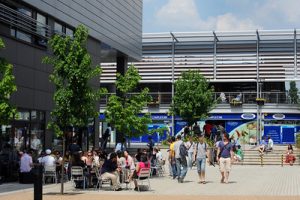
What happens in before and after classes is where the real value is
No question that schools earn their tuition when students are on campus. There are great academics, clubs, service projects, sports, study groups, friends and peers, amazing learning experiences in the classroom, fun gathering places, assemblies, speakers, cool research projects, activities, groups, student government, career search assistance, art exhibits, school newspapers, intramurals, student demonstrations, practices, games, extra help, and of course amazing faculty, and staff who will drop whatever they are doing to help a student or parent. The energy on a school campus is electric.
In great schools, it is what happens outside of class that makes them great. Of course great academics are the foundation upon which all that happens, but these “extra” elements are where the real value comes from.
As we look to finish out the year virtually. As we look to fill our summer programs virtually. Even as we consider what the fall semester will look like, private schools, universities, and colleges must be asking a different question: What is our new value proposition?
Online learning, in some ways has leveled the playing field. Within the schools that are able to offer online education to its student population, most are getting by teaching math, science, history, art, computer science, language, and even physical education. And yes some creative teachers have found ways to be more effective than others in that teaching, but overall the new learning is relatively equal. What I mean is that there are not really any visible way to distinguish features, at least not enough to distinguish excellent learning vs good learning.
Private schools K-12, private and public universities and colleges, suddenly have to define what it is that they can offer that distinguishes them from their competition. In some cases depending on where you are located and who your audience is, just offering classes online might be enough, or at least minimally enough. Or is it?

What are you doing above and beyond to earn tuition dollars
Tuition, whether to a K-12 private school, public university, or private college can go from a few thousand to tens of thousands of dollars. Our traditions, extra-curriculars, intangibles, and activities that go on inside of the buildings on campus are what justify that amount.
How can you justify that amount when those elements are no longer part of the equation?
You have to define your value proposition. Why would people pay you money, especially when that money is hard to come by… especially if there is a similar product elsewhere for less, or even free. What are you doing for your constituencies that others are not? Are online classes alone worth the value of the tuition? Are you able to offer the exceptional quality of learning online? Better yet, do you even know how you will determine that? What else are you doing?
There are 2 things you have to do right now.
Make it clear to your constituencies that you are trying hard, pushing the envelope, reaching out, thinking out-of-the-box, experimenting, taking advantage of every tool you can. You are doing everything in your power to earn their tuition dollars. Your community must be aware of everything that you are doing. Communication, marketing and advertising are vital. Get the word out. Get in the paper. Get on TV. Get on the radio. Get on social media. Send regular correspondence via email. Make phone calls. Send out newsletters, surveys, and brochures. Let the name of your school be in their mind throughout this. The best complaint you can have now is that you are communicating too much. Let your school be a known in the middle of these unknown times.
Go back to your mission statement. Read and re-read it, and then get your best team members together and figure out how your school can accomplish your mission given the new circumstances. Think hard, study the words, what can you do right now, think in-the-box and think-out-of-the-box, what is at the core of the mission. And by the way, failure is an option here!! Meaning: it is OK to try things. Some of those ideas may not work out as planned, but your students and families will appreciate the attempt. Get back up and try again.
In times like these with more unknowns than knowns, schools have to re-define their value propositions.







